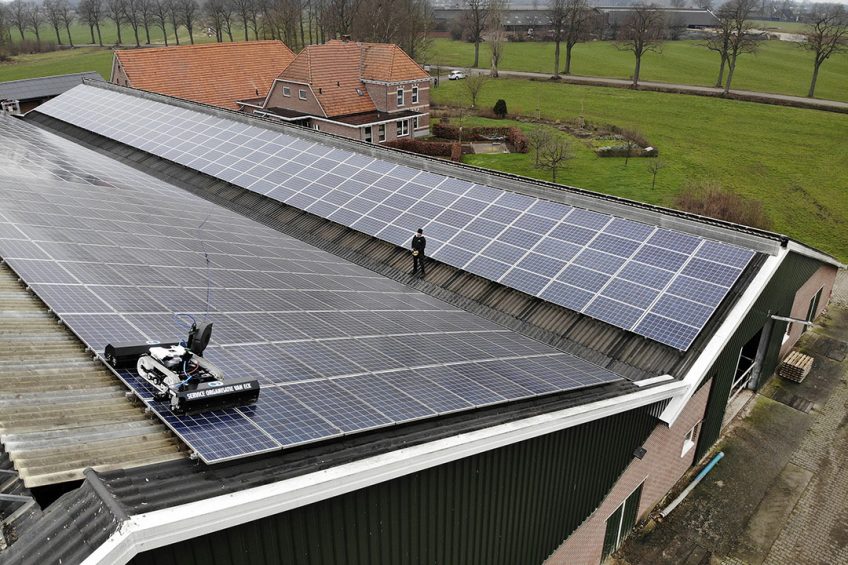Cracking down on carbon footprint of eggs to reach net zero

UK retailer Morrisons expects to launch affordable net zero carbon eggs next year as part of a pledge to have the first net zero British farms by 2030.
With UK agriculture accounting for 10% of all UK greenhouse gas emissions, the pledge by Morrisons is 5 years ahead of other supermarkets and 10 years before the National Farmers’ Union net zero goal of 2040. The company will this month start working with a selection of farmers to create net zero carbon farm models, looking at the emissions picture through the whole lifecycle of farm produce – from germination to leaving the farmgate for a Morrisons store. Once a workable blueprint has been established, the models will then be shared with all farmers supplying the retailer.
Farm models
The farm models will look at reducing carbon via rearing different animal breeds, using low food-miles feedstuffs, using renewable energy and low emission housing, and cutting down fuel and fertiliser use. Carbon emissions will be offset through the planting of grassland, clover, tree, hedgerows as well as restoring soils and peatland. As part of the programme, Morrisons will also work with universities, vets, farming and countryside organisations, and carbon experts, setting up the world’s first School of Sustainable Farming at Harper Adams University.
Unique position as British farming’s biggest supermarket customer
David Potts, Morrisons chief executive, said climate change was one of the largest challenges facing the world and growing food was a key contributor to greenhouse gas emissions: “As British farming’s biggest supermarket customer, we’re in a unique position to guide our farms and help lead changes in environmental practices.”
Supermarket adopts measures beyond Better Chicken Commitment
A second UK supermarket plans to launch an “affordable” range of high-welfare poultry by introducing a new breed of slower growing chicken next year.
UK Environment Secretary George Eustice added that it was encouraging to see Morrisons commit to being supplied by net zero carbon British farms on the ambitious timescale, which would protect the environment for future generations. Minette Batters, NFU president, applauded the company, adding: “Our contribution spans 3 pillars of action – reducing emissions, storing carbon on farm land, and renewables and the bioeconomy.”
How to reduce the carbon footprint of UK egg production
Consultant ADAS has recently looked at the carbon footprint of UK egg production. It found that the largest component of an egg’s carbon footprint is from embedded emissions in concentrate feed, which account for approximately 50% of emissions. The emissions from poultry manure storage and application also account for a significant part of the footprint with the remaining emissions attributable to transport, fuels and water use. Report authors Laura Walker and Olivia Godber found that approximately 20% of laying poultry diets are composed of soya. Imported soya has a very high carbon footprint due to land use change and transport. Reducing soya with alternatives could significantly reduce the carbon footprint of poultry diets but it is challenging to do so.
Winning strategies to increase egg sales
Extolling the health benefits of eggs and entering untapped markets are 2 areas where the global poultry sector needs to do more, according to a leading food academic. Professor David Hughes, professor of food marketing at Imperial College London, said consumers still didn’t understand the myriad of health benefits of natural eggs.
Locally sourced alternatives, such as rapeseed meal, peas, beans and lupins are not favoured for many reasons, including their lower protein content when compared to soya, presence of anti-nutritional factors, the difficulty of growing them in the UK, and the increased cost. Sustainably sourced certified soya is another option but is often difficult to obtain and more expensive than conventional soya, but the authors say the feeding of insects or algae could become an option.
In order to reduce the carbon footprint of poultry manure, the ADAS report suggests exporting manure as feedstock for an anaerobic digester or selling manure as fertiliser. And it says the carbon footprint of eggs can be lowered further through improved husbandry practices of laying hens:
- Reducing casualties and increasing layer rates both have a positive impact on footprints – the carbon dioxide emissions per dozen eggs drops dramatically when comparing a high performance laying flock, with 15 more eggs per layer per annum than average, against an average laying flock
- Selective breeding to improve laying hen carcass quality could further reduce footprints by allowing spent hens to be sold for meat – a proportion of their greenhouse gas emissions would therefore be allocated to the meat, rather than the egg
- Silvopastoral systems could be a feasible strategy for free range and organic systems to reduce their carbon footprint. These systems combine fodder plants, shrubs and trees on the outdoor hen area, taking an integrated approach to farming that is based on traditional South American farming practices. The plant material increases carbon capture and storage, while providing natural shelter to the hens, improving animal welfare and resilience. Manure deposited by the hens boost soil fertility.












